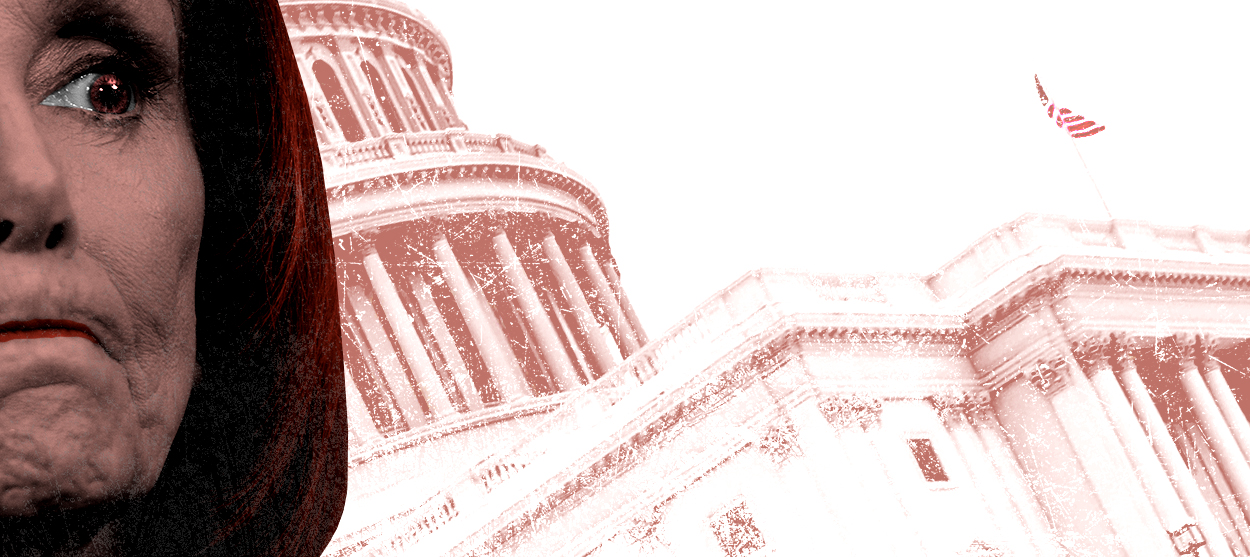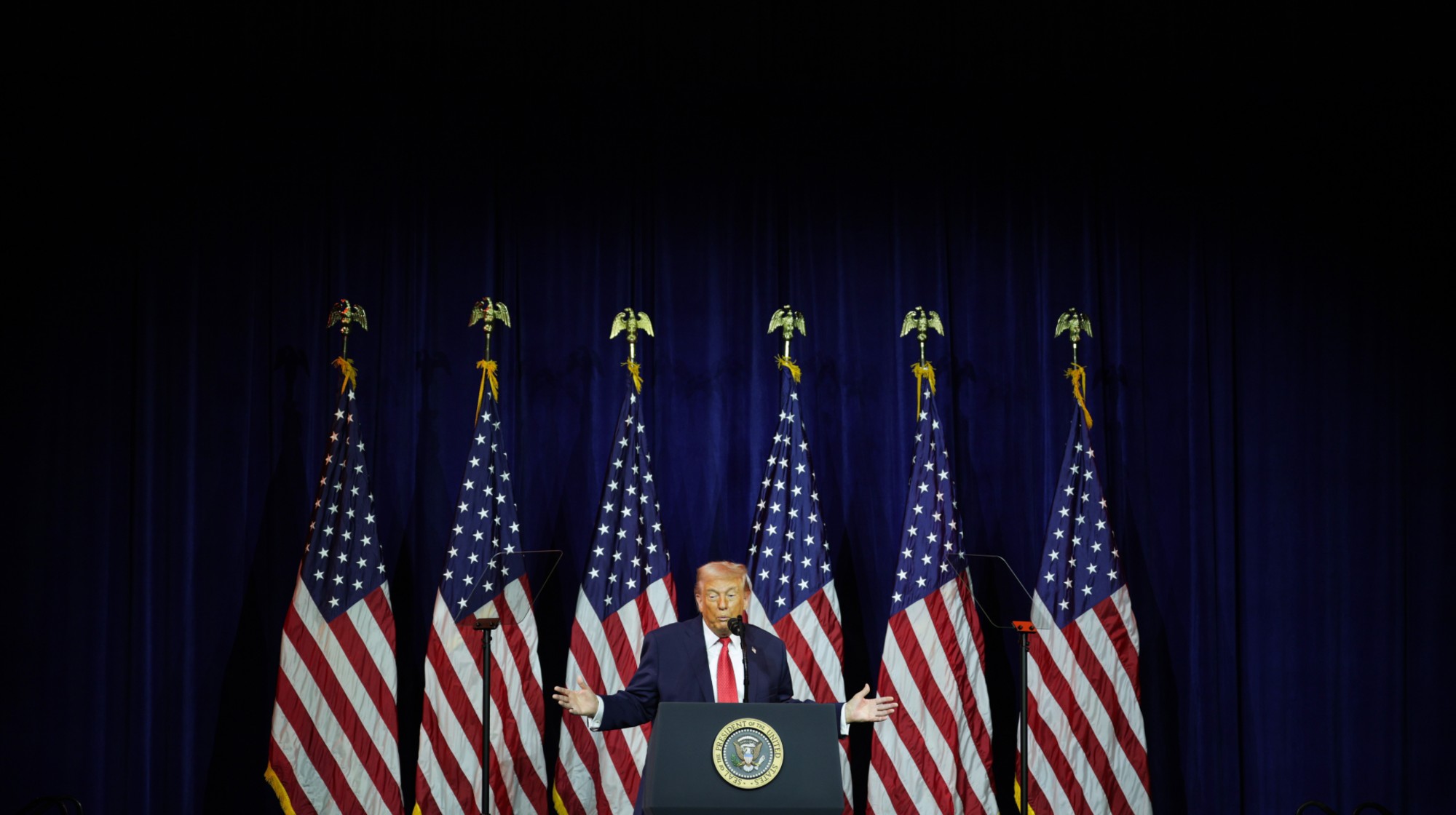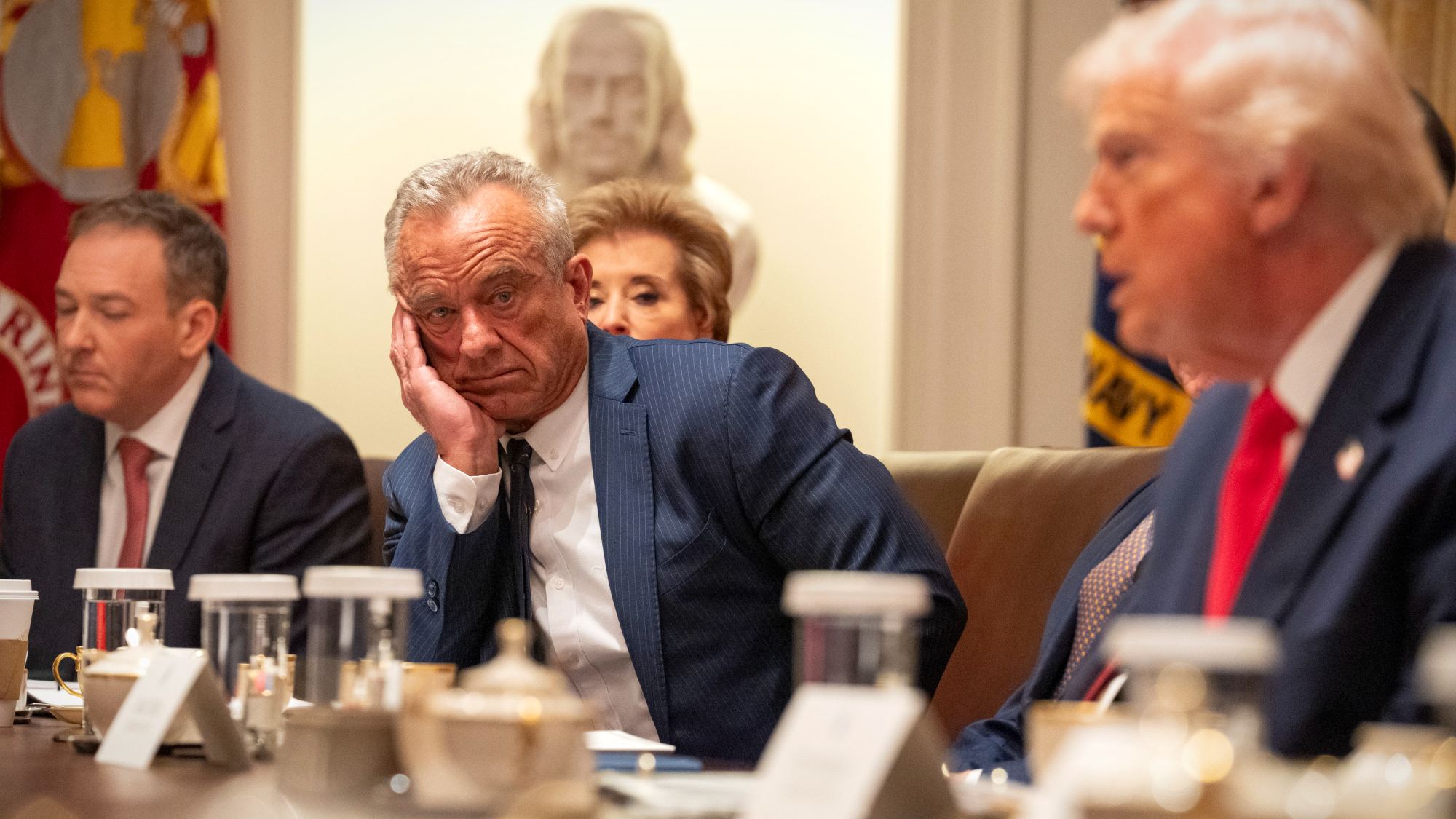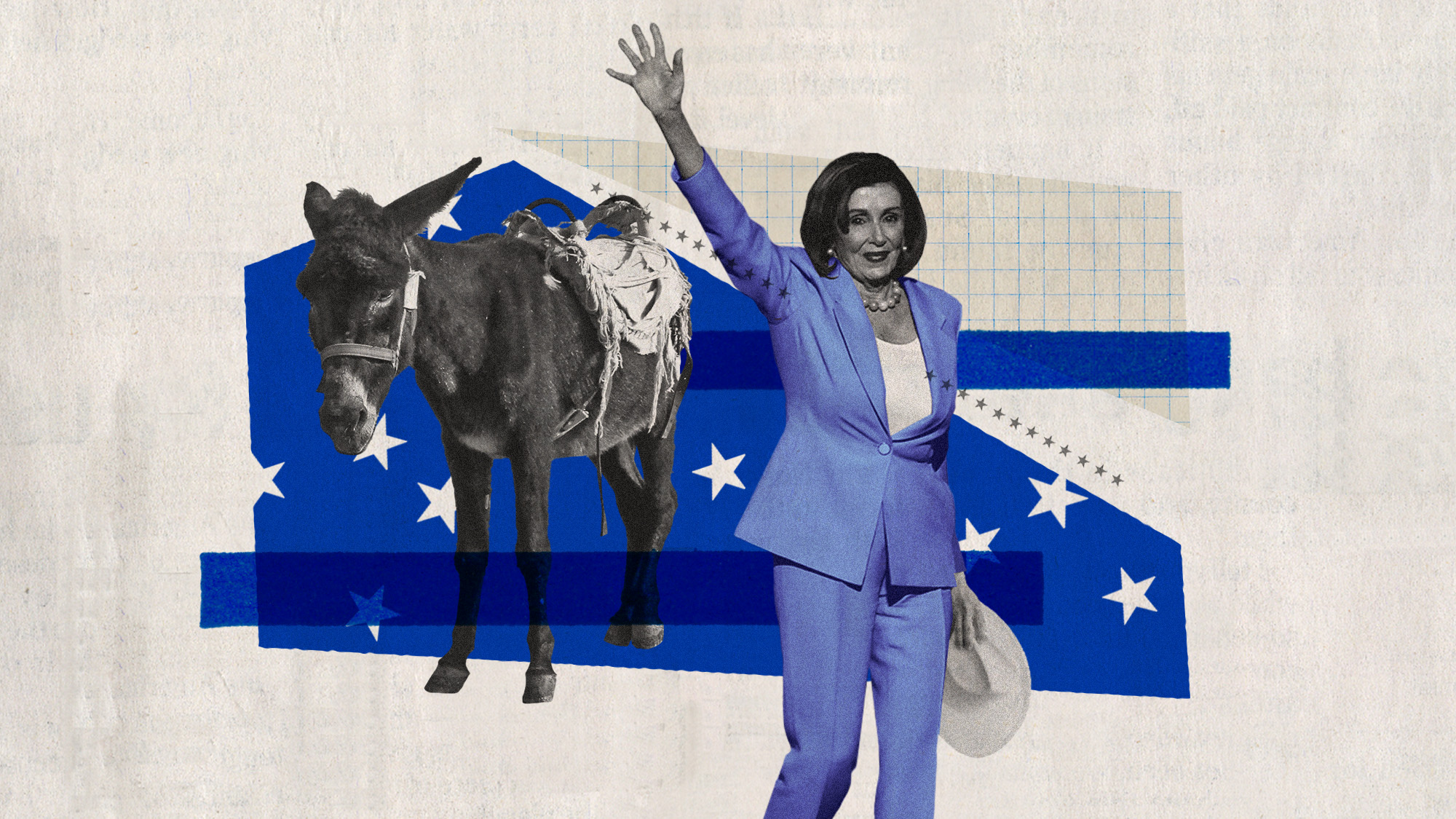Nancy Pelosi lost the impeachment standoff
We always knew it would come to this


A free daily email with the biggest news stories of the day – and the best features from TheWeek.com
You are now subscribed
Your newsletter sign-up was successful
After nearly a month of dithering, Nancy Pelosi is finally accepting defeat in her standoff with Mitch McConnell over impeachment. Despite insisting as recently as Thursday that she would wait to transmit the articles of impeachment against Donald Trump to the Senate until she was confident that the trial in the upper chamber would proceed on terms favorable to her party, she quietly backed down on Friday morning. Her letter to Democratic colleagues in the House announced that the articles would be sent next week even though McConnell has made it clear that none of her demands — testimony from additional witnesses, for example — would be honored or even considered.
Is anyone actually surprised by this outcome? How likely was it that Pelosi was ever going to change McConnell's mind? All of the leverage has been on his side from the beginning. He would be the one to decide how the trial would proceed, when it would begin, and how long it would last. Having to surrender the fate of judicial proceedings to the opposing party was how this was always fated to end.
Was a delay actually in her party's interest? It could be argued that she hoped to persuade a handful of Republican senators to insist upon subpoenas for witnesses and documents. This did not happen, nor was it ever very likely. By the time Pelosi acknowledged that McConnell had the upper hand, Senate Democrats had been publicly begging her to surrender for days. "I think the speaker should send the articles regardless," Senator Chris Coons (Del.) said on Tuesday. "I think the time has passed."
The Week
Escape your echo chamber. Get the facts behind the news, plus analysis from multiple perspectives.

Sign up for The Week's Free Newsletters
From our morning news briefing to a weekly Good News Newsletter, get the best of The Week delivered directly to your inbox.
From our morning news briefing to a weekly Good News Newsletter, get the best of The Week delivered directly to your inbox.
It is worth pointing out that Pelosi's letter arrived amid McConnell's decision to sign on to a resolution introduced by Senator Josh Hawley of Missouri that would have dismissed the articles of impeachment 25 days after their adoption on the grounds that they had not been transmitted. It is unclear exactly what the constitutional implications of such a move would have been, but one thing that is clear is that it would have added many months of legal wrangling to the impeachment process. Forget about having presidential candidates in Washington when they should be in New Hampshire or South Carolina — a Supreme Court case over the constitutionality of a Senate dismissal of impeachment articles may well have dragged on into the summer, during which time Trump (and many constitutional scholars) could have argued that impeachment had never taken place. Could this possibly have forced her hand? We may never know.
Which brings us back to the mystery that has been at the center of Trump's impeachment since the beginning. Why did Pelosi, a sober-minded, no-nonsense centrist who declared over and over again that impeachment was not worth pursuing, finally change her mind? Why did she wait to do so until last October, at which point it would have been obvious that the process would overlap with this year's caucuses and primaries? Why did she agree to draft and adopt articles of impeachment before she had secured the testimony of all the witnesses she and her members considered relevant? And why, finally, did she seem to have no coherent response prepared for the not exactly remote contingency in which McConnell refused to give her and her Senate colleagues the sort of trial they wanted? To quote an eminent anti-Boomer philosopher: "No thought was put into this."
Though it is difficult to see what motivated Pelosi, especially in her decision to stall the inevitable handover of the process to the Senate, it is hard not to imagine that she had some sort of plan in mind. It just doesn't seem to have been a very good one.
A free daily email with the biggest news stories of the day – and the best features from TheWeek.com
Matthew Walther is a national correspondent at The Week. His work has also appeared in First Things, The Spectator of London, The Catholic Herald, National Review, and other publications. He is currently writing a biography of the Rev. Montague Summers. He is also a Robert Novak Journalism Fellow.
-
 Will increasing tensions with Iran boil over into war?
Will increasing tensions with Iran boil over into war?Today’s Big Question President Donald Trump has recently been threatening the country
-
 Corruption: The spy sheikh and the president
Corruption: The spy sheikh and the presidentFeature Trump is at the center of another scandal
-
 Putin’s shadow war
Putin’s shadow warFeature The Kremlin is waging a campaign of sabotage and subversion against Ukraine’s allies in the West
-
 Democrats pledge Noem impeachment if not fired
Democrats pledge Noem impeachment if not firedSpeed Read Trump is publicly defending the Homeland Security secretary
-
 The billionaires’ wealth tax: a catastrophe for California?
The billionaires’ wealth tax: a catastrophe for California?Talking Point Peter Thiel and Larry Page preparing to change state residency
-
 Trump fears impeachment if GOP loses midterms
Trump fears impeachment if GOP loses midtermsSpeed Read ‘You got to win the midterms,’ the president said
-
 Bari Weiss’ ‘60 Minutes’ scandal is about more than one report
Bari Weiss’ ‘60 Minutes’ scandal is about more than one reportIN THE SPOTLIGHT By blocking an approved segment on a controversial prison holding US deportees in El Salvador, the editor-in-chief of CBS News has become the main story
-
 Democrat files to impeach RFK Jr.
Democrat files to impeach RFK Jr.Speed Read Rep. Haley Stevens filed articles of impeachment against Health and Human Services Secretary Robert F. Kennedy Jr.
-
 What happens to a Democratic Party without Nancy Pelosi?
What happens to a Democratic Party without Nancy Pelosi?TODAY'S BIG QUESTION The storied former speaker of the House is set to retire, leaving congressional Democrats a complicated legacy and an uncertain future
-
 Has Zohran Mamdani shown the Democrats how to win again?
Has Zohran Mamdani shown the Democrats how to win again?Today’s Big Question New York City mayoral election touted as victory for left-wing populists but moderate centrist wins elsewhere present more complex path for Democratic Party
-
 Millions turn out for anti-Trump ‘No Kings’ rallies
Millions turn out for anti-Trump ‘No Kings’ ralliesSpeed Read An estimated 7 million people participated, 2 million more than at the first ‘No Kings’ protest in June
